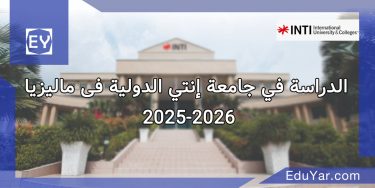Study Finance in Malaysia 2025: Insights and Opportunities
Malaysia is rapidly gaining recognition as an attractive destination for international students who wish to pursue higher education, especially in finance. With a growing financial sector, globally recognized universities, and affordable living standards, Malaysia is set to be a top choice for students in 2025. This article explores all dimensions of studying finance in Malaysia to help prospective students make informed decisions.
Why Malaysia for Finance Studies?
Malaysia offers a perfect combination of academic quality, cultural diversity, and affordability, making it an ideal location for international students. Key reasons include:
1. Quality Education:
– Renowned universities with accredited finance programs.
– State-of-the-art infrastructure and resources for students.
2. Affordable Costs:
– Tuition fees are significantly lower compared to Western countries.
– The cost of living is manageable for students.
3. Cultural Experience:
– A vibrant, multicultural society that enriches global networking and interpersonal skills.
4. Growing Financial Hub:
– Strategic location in Southeast Asia provides access to thriving markets and industries.
– Exposure to practical financial insights from the region’s dynamic economy.
Top Universities Offering Finance Programs in Malaysia
Below is an HTML table summarizing notable universities and their finance-related programs:
| University | Location | Programs Offered | Tuition Fees (USD/year) |
|---|---|---|---|
| University of Malaya (UM) | Kuala Lumpur | Bachelor’s and Master’s in Finance | 4,500 – 6,000 |
| Universiti Putra Malaysia (UPM) | Serdang | Investment and Financial Management | 4,000 – 5,000 |
| HELP University | Damansara | Business Analytics and Finance | 3,500 – 5,000 |
| Taylor’s University | Subang Jaya | Risk Management and Corporate Finance | 6,000 – 7,500 |
Curriculum and Courses
Finance programs in Malaysian universities aim to build a strong foundation in financial theories and practical applications. Typical curriculum includes:
– Core Courses:
– Corporate Finance
– Investment Analysis
– Financial Accounting and Auditing
– Specialized Modules:
– Risk Management and Insurance
– Financial Technology (FinTech) Innovations
– Islamic Finance (unique to Malaysia’s expertise in this sector)
– Practical Exposure:
– Internships with leading financial institutions.
– Research projects and case studies tailored to market trends.
Scholarships and Financial Aid
Malaysia is known for providing financial support to international students. Popular options include:
1. Government Scholarships:
– Malaysia International Scholarship (MIS): Covers tuition and living expenses for eligible students.
2. University-Based Scholarships:
– Merit-based and need-based awards are available.
3. Corporate Scholarships:
– Leading corporations such as CIMB Bank and Petronas offer specialized scholarships for finance students.
Living Costs and Accommodation
Malaysia is well-regarded for its affordability, making it suitable for students from diverse backgrounds. Here’s an average monthly cost breakdown:
– Accommodation: $200–$500
– Food: $100–$150
– Transportation: $30–$50
– Miscellaneous Expenses: $50–$100
To gain admission to finance programs at universities in Malaysia, prospective students typically need to fulfill a set of academic, language, and procedural requirements. While specific requirements may vary by institution, here are the general criteria:
1. Academic Requirements
- Undergraduate Programs:
- High school diploma or equivalent with strong performance in mathematics and related subjects.
- A minimum Grade Point Average (GPA) or percentage score as per the university's standards.
- Postgraduate Programs:
- Bachelor's degree in finance, economics, business, or a related field.
- Minimum GPA of 3.0 (on a 4.0 scale) or equivalent, depending on the program's competitiveness.
2. English Language Proficiency
- For non-native English speakers, evidence of language proficiency is required. Accepted tests include:
- IELTS: Typically, a minimum score of 6.0-6.5.
- TOEFL: Minimum scores range from 550 (paper-based) to 80 (internet-based).
- PTE Academic: A score of 50–58 or higher may be required.
- Some universities also offer English preparatory courses for students who fall slightly short of the required scores.
3. Additional Documents
- Academic transcripts and certificates (officially translated into English, if necessary).
- Statement of purpose (SOP) outlining reasons for studying finance and future aspirations.
- Letters of recommendation from previous educators or employers (usually two).
- Updated curriculum vitae (CV) for postgraduate applicants.
- Passport copy (valid for at least 18 months).
4. Application Fee
- An application fee is required, typically ranging from $25 to $50, depending on the university.
5. Visa Requirements
- International students must obtain a Malaysian student visa. Required documents generally include:
- Admission letter from the university.
- Medical examination report.
- Proof of financial capability (e.g., bank statements).
- Passport-sized photographs.
- Completed visa application form.
6. Program-Specific Requirements
- Certain finance programs may have additional prerequisites, such as prior work experience (for MBA or specialized postgraduate programs) or knowledge of specific software/tools.
Career Opportunities
Graduates of finance programs in Malaysia are highly sought after in the job market. Possible career paths include:
- Financial Analyst
- Investment Banker
- Corporate Finance Consultant
- Risk Manager
Malaysia's financial sector is growing at a remarkable rate, providing opportunities for both local and international graduates.
Student Life and Cultural Experience
Studying in Malaysia isn’t just about academics. The vibrant culture, friendly locals, and incredible landscapes ensure a memorable student life. Some key highlights include:
- Exploring iconic landmarks such as the Petronas Twin Towers and Batu Caves.
- Trying diverse cuisines from Malay, Chinese, and Indian influences.
- Participating in local festivals and student activities.




